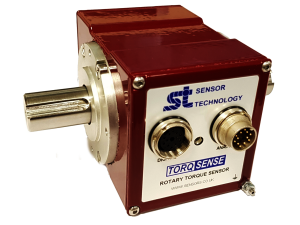Could the sensors sector be a microcosm of the whole national economy? Tony Ingham of Sensor Technology certainly thinks so. Here he looks at what it will take to run a small technology company in the second decade of the millennium and suggests parallels with the wider world.
 You might think it perverse to say something positive about the recent recession, but it had a characteristic that I have rarely seen before – in bad times or good. It helped a lot of people realise what really makes economies tick.
You might think it perverse to say something positive about the recent recession, but it had a characteristic that I have rarely seen before – in bad times or good. It helped a lot of people realise what really makes economies tick.
In previous recessions, most peoples’ reaction was to work harder on winning sales, i.e. keep doing what they had been doing and hope for an upturn. This time though, people saw the weaknesses of the whole financial sector and began to analyse how and why economies work.
There has been a realisation that there is a massive difference between fast paper profits and fundamental wealth creation. The engine room of the economy is not the City of London, it is the primary industries, such as manufacturing and agriculture. These create thousands of jobs up and down the country, rather than concentrating so much wealth into the hands of a few lucky individuals that they become divorced from economic reality.
In fact, manufacturing, engineering, science and technology have all fared relatively well over the last couple of years – most of the pain was felt in other sectors. So it is not that surprising that manufacturing is currently our strongest sector.
But the important point is that it must remain so. Manufacturing can be wonderfully profitable if managed correctly over the whole term of its products’ lifecycles. It creates masses of jobs at all levels. It creates yet more jobs in the supporting sectors such as research, development, engineering and design. Its products are easily exportable, so will suck overseas revenues into our coffers. It is also very stable; the need for capital production equipment, highly skilled staff and a sophisticated supporting infrastructure makes it relatively difficult to relocate once it is established.
At the moment, the government is full of praise for manufacturing, but this simply is not enough. This and future governments must support manufacturing and the other technical industries. It needs to develop policies that encourage and promote manufacturing, help exporters, support enterprise and finance R&D; that generate enough trained scientists, engineers, technicians and designers, that improve the social status of those that serve their country via the technology industries. It’s a big ask, but the Chinese and Indians are doing it; the Japanese and Germans did it 50 years ago and the Americans did it 50 years before them.
So where does the sensor sector fit into all this? Well sensors are now widely used across so many areas that they are a bell-weather for the whole economy.
Overall, the sensor sector weathered the downturn well. Early in the recession many car makers and other major industries shut down production for 3 months to reduce stock. But they also took the opportunity to invest in new manufacturing systems, including sensors. Furthermore, sensors are wonderfully exportable, so manufacturers often remained busy servicing clients abroad. And while the recession was bad, the sectors that suffered the most – finance, banking etc – were not major direct purchasers of sensors.
The UK sensors sector is currently underdeveloped, so offers many opportunities for building strong manufacturing companies that could easily become world leaders and major exporters.
The sector got going on a worldwide basis in the late-1970s or early 1980s, when traditional craft-based instrument making was giving way to sophisticated manufacture of high tech sensors. Unfortunately, at this time manufacturing was definitely not in favour in the UK. Instead, the government of the day was happily clearing away what it saw as union-infested, decrepit, smokestack industries, so that new sunrise industries could take root (in a free market, without government support). So while the UK got call centres and pension advisors, sensor manufacturing flourished in countries where capital enterprise was supported, where labour forces did not have a black name, where a growing manufacturing sector provided a domestic market.
I must at this point say that there were exceptions, notably our own company Sensor Technology which researches, designs, develops, and manufactures sensors in the centre of England. It is a self-evident truth that what we have achieved could be replicated by other sensor manufacturers, especially if general UK manufacturing grows.
There is a virtuous circle to be developed. The more sensors that are used, the greater the manufacturing volumes; this lowers unit prices and also allows investment in automated production and improved quality systems, which encourages yet more usage.
The driving forces for the development of sensor technology include miniaturisation, robust solid state controllers replacing delicate mechanisms, wireless solutions, increasing intelligence, improved connectivity and ‘open’ communications. New drivers will also emerge, and new markets will open up.
Since Sensor Technology first set out its stall, cars have gone from having a handful of sensors to literally thousands, factories have become automated, soaking up sensors, entirely new markets have opened up such as home electronics, mobile devices, medical equipment, CCTV and surveillance, etc. Future growth will be even greater, and it is there for the taking – hopefully by a strong UK sensor manufacturing industry!





